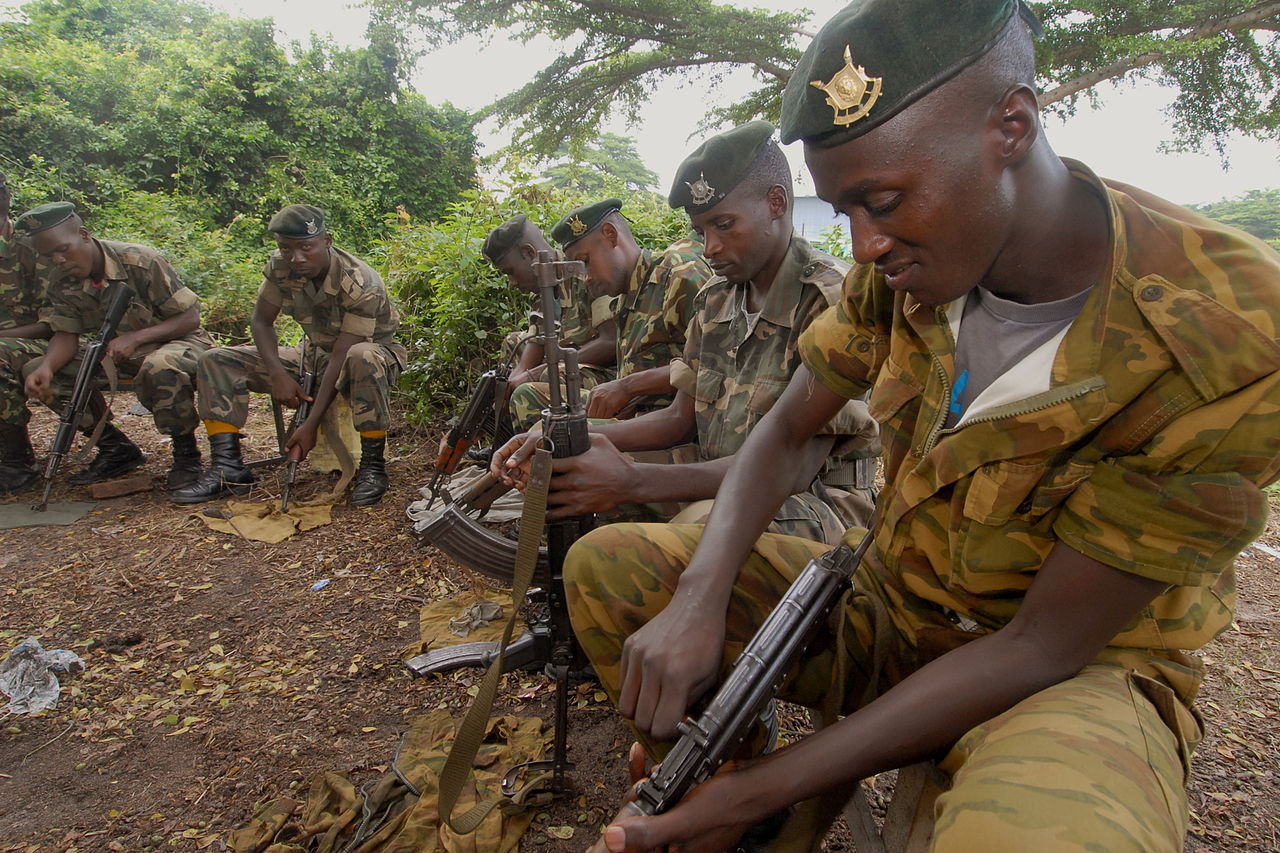
Should the African Standby Force become fully operational, soldiers such as these from Burundi would play a key role in peacekeeping for the organization.
“The ASF has never seen action, with ad hoc troop coalitions instead becoming the norm in Africa.”
It has been nearly two decades since the African Union (AU) created the African Standby Force (ASF), a proposed multinational and multidisciplinary peacekeeping military organization. However, despite numerous conflicts across the continent, the ASF has yet to respond. Instead, as the accompanying excerpted article from South Africa’s Institute for Security Studies explains, various African regions have created their own ad hoc coalitions of troops to deal with security issues in their associated territories. For example, seven East African Community countries established a regional military force in April 2022 that helped restore stability in parts of the Democratic Republic of the Congo, where militia groups were conducting violent attacks. Likewise, in 2021 Rwanda and the Southern African Development Community sent forces to northern Mozambique to fight Islamic militants.
These regional coalitions of militaries have not followed the ASF’s concepts regarding how and when forces should be deployed and have called into question the ASF’s relevance. The coalitions believe they are doing the work the ASF was designed to do but has not done. According to the article, there are several reasons why the ASF has failed to launch. First, there have been numerous political problems in addition to security concerns between African nations. There have also been difficulties between the AU and the five regional economic blocs that are supposed to coordinate the ASF. Some African countries have been slow to commit necessary resources to the ASF. However, as the article notes, the ASFs biggest problem is that violent extremism was not originally addressed in the organization’s framework, forcing regional coalitions to fill this gap.
Efforts are underway to resolve some of the issues constraining the ASF. These include forming mechanisms to improve decision-making, facilitating a better understanding of when to deploy the ASF, and expediting the formation of an ASF counterterrorism unit. While these may sound promising, this is not the first time that the ASF has seen such attempts. This inability of the AU to have a large, ready, and unified force means Western powers seeking to support peacekeeping operations must deal with several different regional forces instead of one. Meanwhile, with regional coalitions providing forces to deal with their regional problems, the pressure is off a bit for the AU to stand up the ASF quickly. However, the inability of the AU to do so reflects the many difficulties it faces trying to unite Africa even in the face of conflicts and terrorism.
Source:
Meressa K. Dessu and Dawit Yohannes, “Can the African Standby Force Match Up to Current Security Threats?” Institute for Security Studies (South African think tank), 2 June 2022. https://issafrica.org/iss-today/can-the-african-standby-force-match-up-to-current-security-threats
The ASF has never seen action, with ad hoc troop coalitions instead becoming the norm in Africa.
The ASF originated in 2003 as a multidisciplinary standby mechanism comprising soldiers, civilians and police in their countries of origin. It is coordinated by the five regional economic communities with the aim of being ready for rapid deployment at short notice. The intention is to help the AU Peace and Security Council discharge its responsibilities relating to peace support missions.
Analysts attribute this problem to the power that regional blocs have over peace and security decisions due to a lack of clarity on the subsidiarity principle between regions and the AU. This ambiguity of roles and responsibilities enables countries to opt for ad hoc security arrangements over the ASF.
Some analysts believe these ad hoc security coalitions complement the ASF and are best suited to tackling Africa’s deadliest transnational armed groups. The coalitions are seen as filling a gap in the AU’s peace and security arsenal by providing immediate responses to violent extremism and other complex threats – which the ASF’s framework doesn’t address.
Image Information:
Image: Should the African Standby Force become fully operational, soldiers such as these from Burundi would play a key role in peacekeeping for the organization.
Source: U.S. Army Africa/Wikimedia Commons/Flickr, https://commons.wikimedia.org/wiki/File:Burundi_peacekeepers_prepare_for_next_rotation_to_Somalia,_Bjumbura,_Burundi_012210_%284324781393%29.jpg
Attribution: CC BY 2.0
